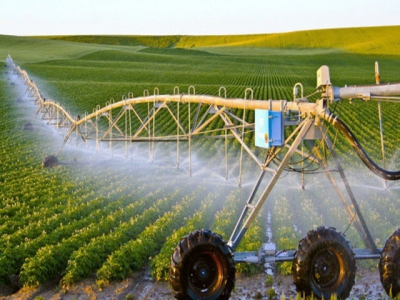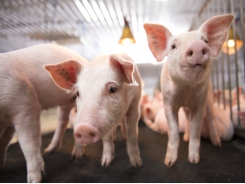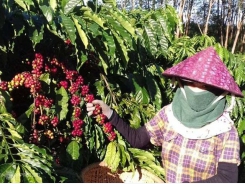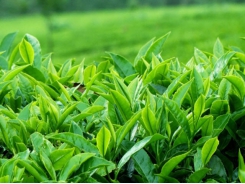Smart agriculture development in urban areas

To promote smart agriculture in Vietnam, Associate Professor Ph.D. Dao The Anh, Deputy Director of the Vietnam Academy of Agricultural Sciences, recommends seven things to do in the upcoming time.
Smart agriculture is increasing its value in Vietnam.
Over time, Hanoi City has promoted high-tech application models and intelligent devices in many agricultural production areas, mainly in Me Linh, Gia Lam, Thuong Tin, Dong Anh, Thanh Oai, Dan Phuong districts.
Promoting smart agriculture is considered the right direction. However, the reality in Hanoi and many other localities across the country shows that this policy still faces many challenges in mechanisms, procedures, quality of capital and human resources, and applying high technology. In reality.
These concerns were discussed in the Workshop "Orientation and Solutions for Smart Agriculture Development in Hanoi City" on November 3. At the workshop, Associate Professor Ph.D. Dao The Anh, Deputy Director of the Vietnam Academy of Agricultural Sciences, gave seven critical solutions to remove the bottleneck.
Firstly, smart agriculture should be encouraged in urban agriculture development, based on research on the market and urban residents' needs.
Secondly, the Government promulgates policies suitable to production practices. Therefore, it is highly feasible to mobilize resources to implement the smart agricultural revolution, thereby proactively investing in technology appropriately in urban areas to create unique, safe, and highly competitive agricultural products.
Thirdly, the Ministry of Agriculture and Rural Development collaborates with the Ministry of Information and Communications to build the overall architecture of agriculture's Digital Government and Digital Economy. In addition, there should be a centralized focal point at the ministerial level to design the information technology system structure.
Fourthly, it is to strengthen the training of human resources, especially high-quality human resources, to take the initiative in approaching smart agriculture. Agricultural extension focuses on training skills to change digital business models for cooperatives and enterprises and build experimental digital transformation models at the units.
Fifthly, it is to deploy, build and collect online agricultural databases, and integrate and synchronize.
Sixthly, it is to attract digital technology businesses to invest in rural agriculture, accompanying farmers. Automation technologies in agricultural production need to be suitable for small-sized farmers, associated with a traceability platform that needs to be prioritized for research.
Seventhly is to promote research and innovation in smart agriculture and expand international cooperation to absorb the world's appropriate digital governance technologies.
Agriculture continues to play an essential role in the past, especially during the social distancing time because of the Covid-19 epidemic. Particularly in Hanoi, the industry maintained a growth rate as follows: in the first quarter of 2021, it increased by 2.51%, in the second quarter, it increased by 3.09%, and in the third quarter, it increased by 4.39% over the same period last year.
Hanoi City contributed significantly to the total export and import turnover of agricultural, forestry, and fishery products, with a total value estimated at over US$ 67.7 billion, up 27.9% over the same period last year, of which exports were estimated at over US$ 35.5 billion, up 17.7% over the same period last year; import was estimated at US$ 32.2 billion, up 41.6%
Towards responsible and sustainable agriculture, Hanoi City promotes the development of smart agricultural models. According to the Department of Agriculture and Rural Development, the city currently has 164 high-tech agricultural production models (105 models in crop production, 39 models in livestock, 15 models in fisheries, and 1 model in the field of agricultural production and animal husbandry). The total value of hi-tech agricultural products currently accounts for about 35% of the total agricultural production in the city.
To provide specific solutions in the plan to build smart agriculture in urban areas, the Workshop "Orientation and Solutions for Smart Agriculture Development in Hanoi City" received many valuable comments, based on the general planning on construction of the capital until 2030, with a vision to 2050.
Regarding cultivation, Hanoi continues to study and build greenhouses and net houses with automation systems in controlling irrigation systems, fertilizing, adjusting humidity, temperature, and light; the monitoring system can analyze the soil, forecast the yield, detect pests and diseases; application of IoT technology, landless farming technology, traceability Blockchain technology, industrial-scale plant cell culture technology, the use of remote control aircraft in fertilizer application and disease control in rice.
The city will promote livestock in closed cages, with a cooling system to help stabilize temperature and humidity, cages, automatic feeding lines, automatic drinking water, and fertilization technology, environmental treatment with advanced technologies such as biological buffers, biological products.
Regarding seafood, Hanoi advocates the application of river technology in ponds, using biological products and automatic oxygen generators, and the biofloc technology.
Có thể bạn quan tâm
Phần mềm

Phối trộn thức ăn chăn nuôi

Pha dung dịch thủy canh

Định mức cho tôm ăn

Phối trộn phân bón NPK

Xác định tỷ lệ tôm sống

Chuyển đổi đơn vị phân bón

Xác định công suất sục khí

Chuyển đổi đơn vị tôm

Tính diện tích nhà kính

Tính thể tích ao hồ



 Restoring fruit sector-key task of the Mekong Delta
Restoring fruit sector-key task of the Mekong Delta  Imports of Vietnamese tea account for 2.4% of…
Imports of Vietnamese tea account for 2.4% of…